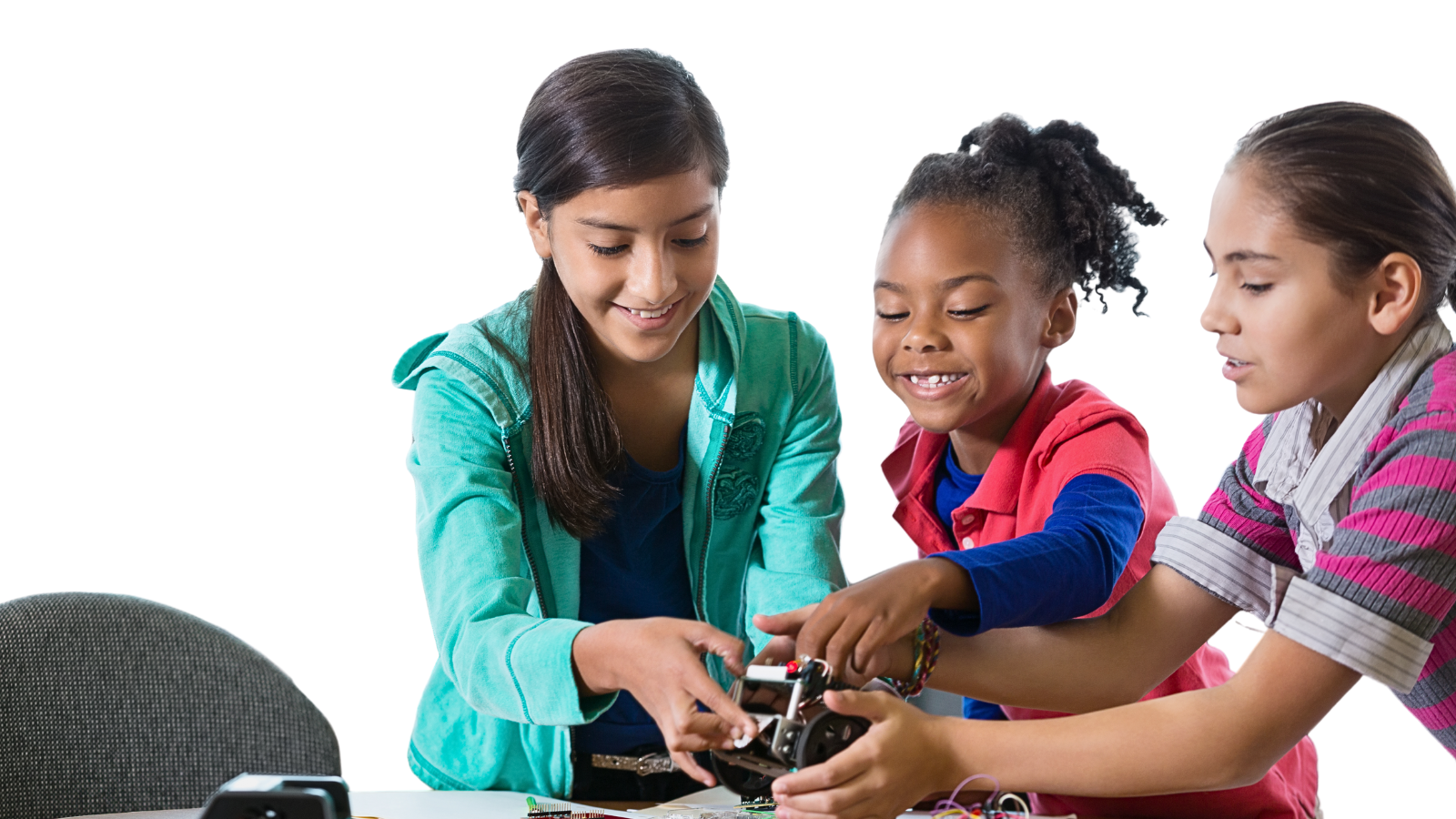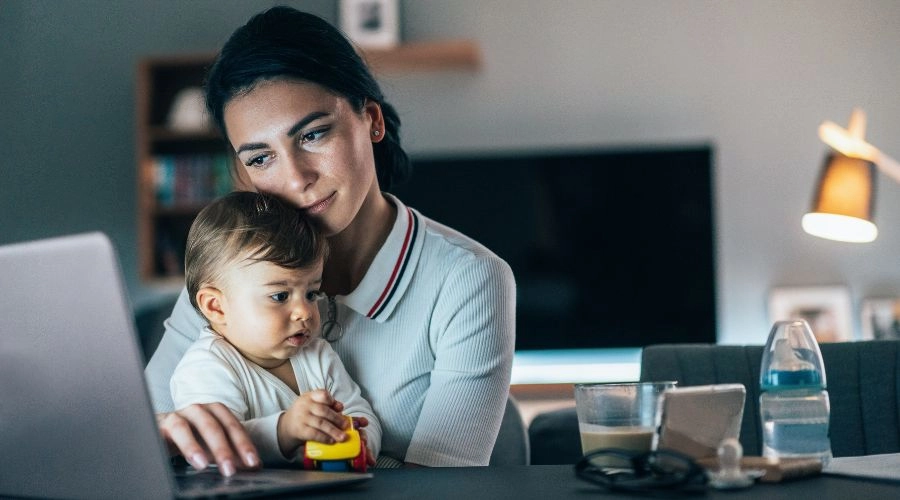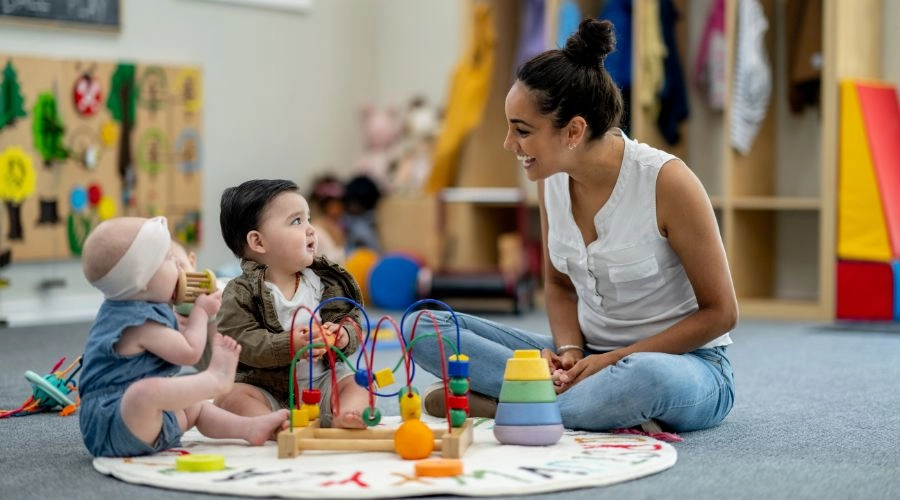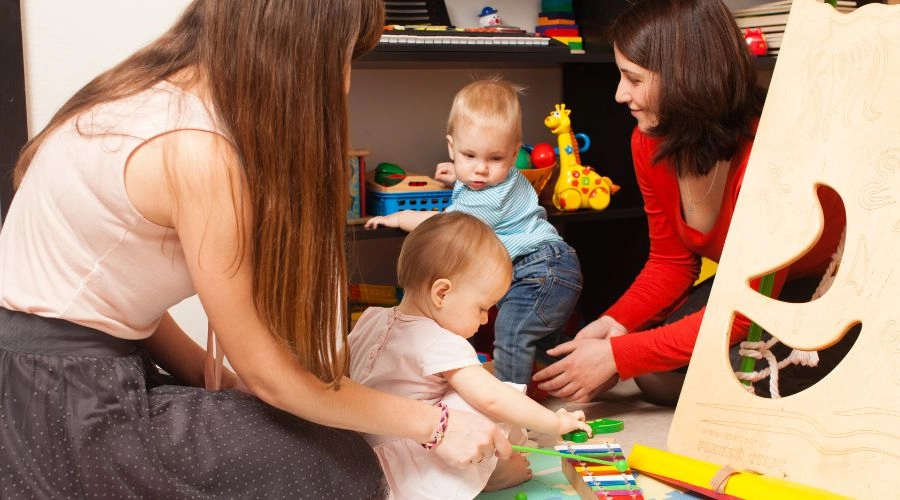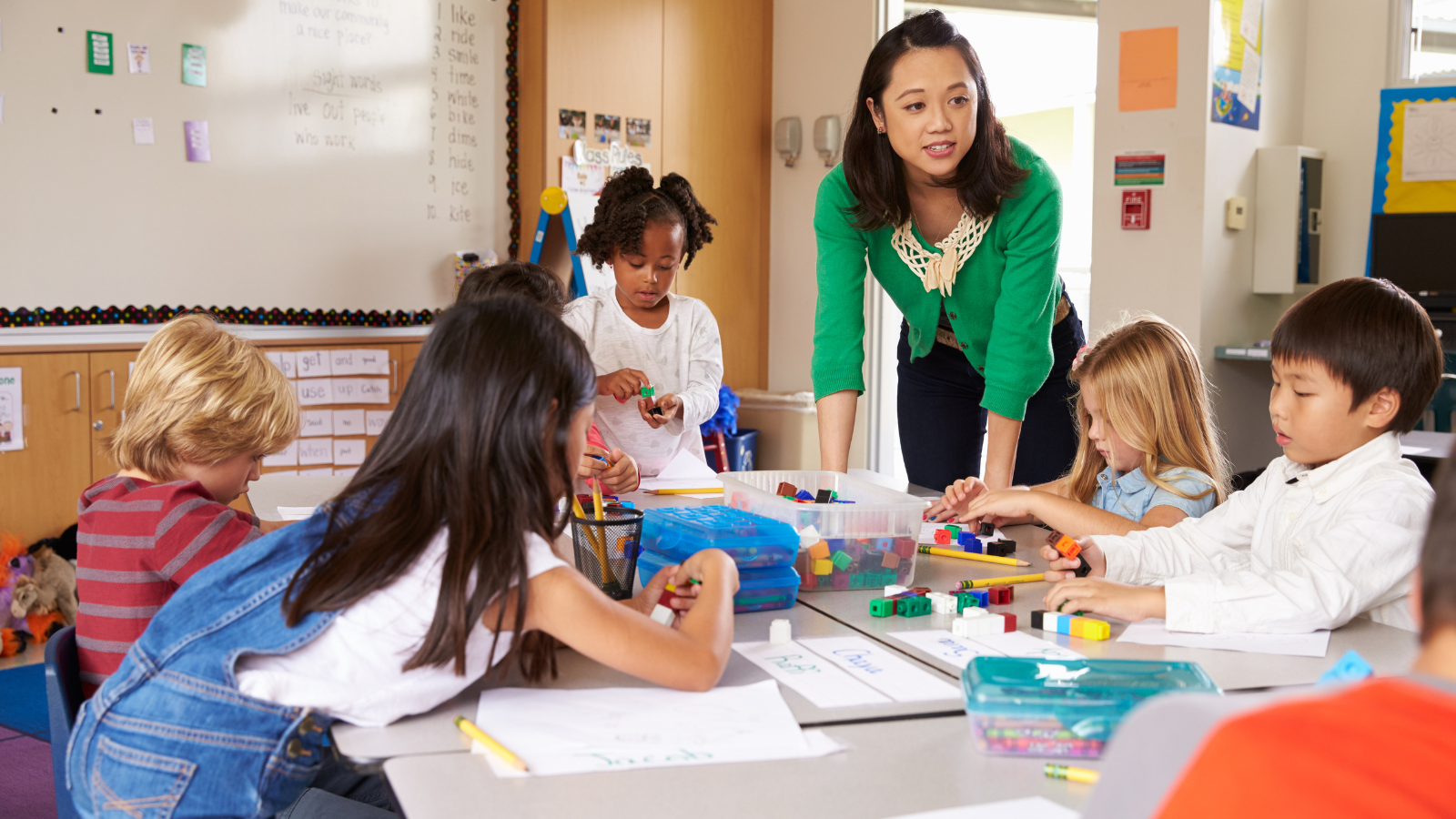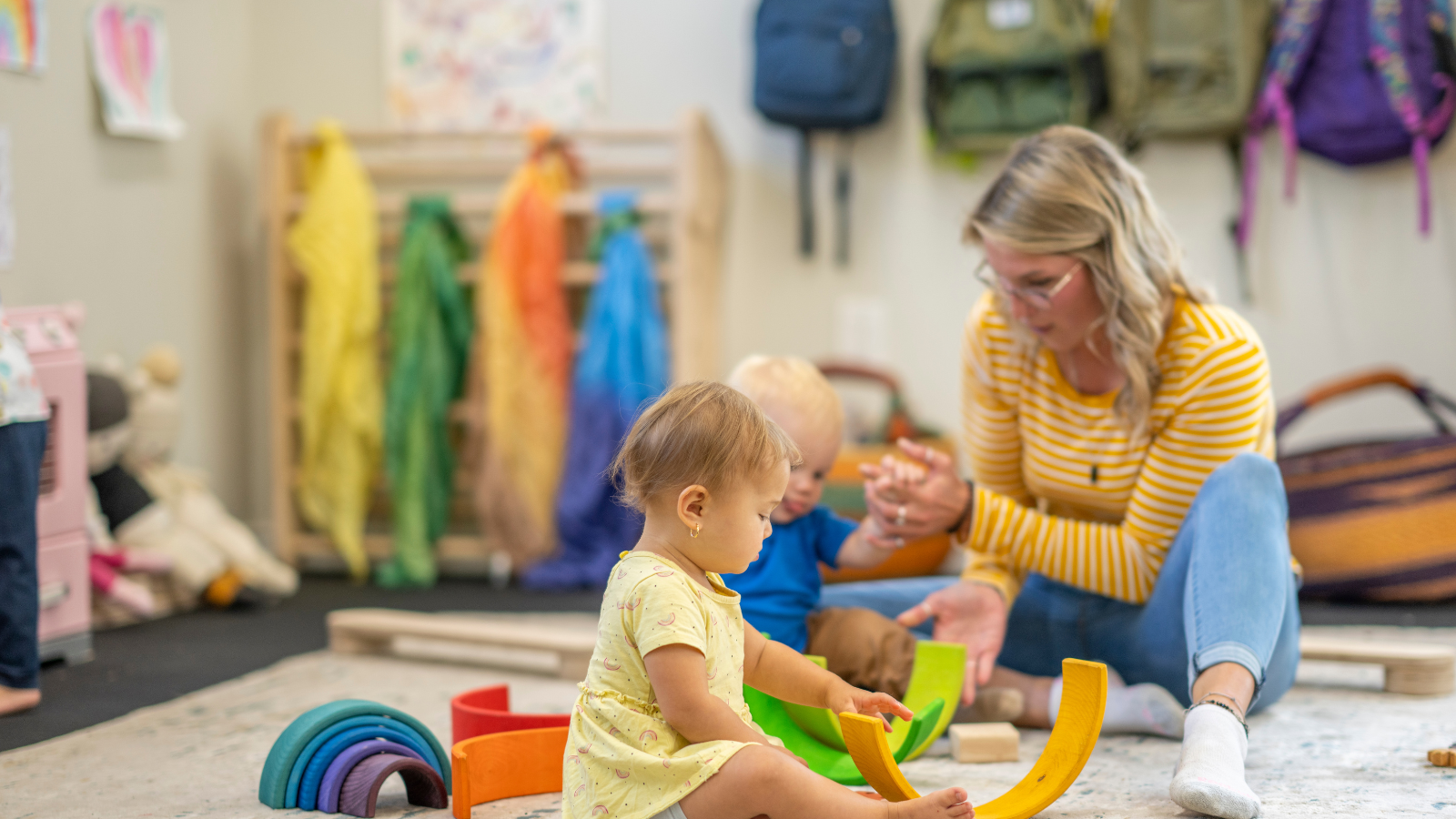One big decision in the whirlwind of parenting is choosing good child care. Our kids’ well-being is super important, so we must carefully consider who we trust to care for them. This choice impacts how they grow up and how successful they’ll be later on. In this blog post, we’ll talk about what makes child care good quality. We want to help parents feel sure about their choices and ensure kids have a great place to grow and learn. We’ll cover everything from what makes care good to the options available so parents can make the best decisions for their kids.
Every child deserves happiness, and every parent deserves the reassurance of their safety and growth. At Paramus Daycare, we provide premier educational preschool programs with fully licensed staff, serving families in northern Bergen County, including Ridgewood, Oradell, Emerson, and Paramus
What Determines the Quality of Child Care?
Quality child care transcends mere supervision; it’s about creating an environment where children can thrive physically, emotionally, and intellectually. Several key factors come into play when assessing the quality of care provided:
- Caregiver Qualifications: The expertise and training of caregivers are fundamental. Qualified professionals who understand child development can provide enriching experiences that support each child’s unique needs.
- Safety Protocols: Ensuring a safe environment is paramount. From secure facilities to emergency preparedness plans, comprehensive safety protocols uphold the well-being of every child in care.
- Curriculum: A well-designed curriculum tailored to different age groups fosters learning and growth. Incorporating age-appropriate activities, such as sensory play, creative arts, and early literacy, cultivates a stimulating environment where children can explore, discover, and develop essential skills.
- Overall Environment: The physical space and atmosphere of the childcare setting significantly impact children’s experiences. A warm, inviting environment with designated play, rest, and learning areas promotes a sense of security and belonging.
- Child-to-Caregiver Ratios: Low child-to-caregiver ratios ensure that each child receives individualized attention and care. This allows caregivers to respond promptly to children’s needs, fostering meaningful interactions and building trusting relationships.
- Positive Interactions: Positive interactions between caregivers and children are fundamental to quality care. Warm, responsive interactions nurture children’s social-emotional development, fostering empathy, communication skills, and self-confidence.
What Does Quality Look Like in Childcare?
Good childcare goes beyond just watching over kids; it’s about making them feel special and safe. Safety isn’t just something to tick off a list; it’s ensuring kids are always protected and happy. Fun activities aren’t just to keep them busy; they’re chosen to help them learn and grow. Taking care of kids isn’t just a job; it’s about caring for their feelings and helping them become strong and kind. And talking openly with parents helps everyone work together to help kids grow in every way. Quality childcare isn’t just about the usual stuff; it’s a big deal for making kids happy and successful now and later.
Feedback: A Crucial Component
Feedback is important for caregivers and parents because it helps them work together better. It’s not just about sharing information; it’s about building trust and teamwork. Regular updates help parents know what their child is up to each day so they can cheer them on or help with any problems. Meetings between parents and teachers are times to discuss how to help the child grow. Everyone can figure out the best ways to help each child learn and develop when talking openly. Feedback isn’t just talking; it’s a way to keep getting better and ensure everyone involved in a child’s life stays connected.
Exploring Different Types of Child Care Programs
Choosing the right childcare can feel overwhelming for parents, but it gives them many different options. Daycare centers have a set schedule and trained staff, which is great for families who want their kids to have a routine and make friends. Preschools help kids get ready for school by teaching them early skills and letting them play with others. Family childcare is smaller and more like being at home, where kids get lots of attention from one caregiver. In-home care is flexible and perfect for families with busy schedules. Knowing these differences helps parents find the best childcare for their child and family.
Understanding How Children Grow and Learn
Good childcare starts with understanding how kids grow and learn. Every child learns in their own way and at their own speed. Good caregivers know this and find places for curious and interested kids. They know when kids should be learning different things and help them along with kindness. They watch how each child learns best and change activities to fit. This makes kids love learning and keeps them curious forever. Good childcare isn’t just about watching kids; it’s about helping each one be excited to learn and discover new things every day.
Community Resources and Support
Getting involved with community resources and support networks can make childcare better for parents and kids. Parents can join workshops and groups to talk with others who are going through similar things and learn from each other. Access to healthcare services means kids can get medical help when needed, keeping them healthy. Community programs also give kids chances to learn outside of daycare, which helps them grow. When families use these resources, they build a strong support system and can get different kinds of help to ensure their kids grow well.
Benefits of Providing a Stable and Stimulating Environment
Good childcare gives kids a stable and fun place to grow and learn. Regular routines make kids feel safe and know what to expect each day. Being close to nice and caring caregivers helps kids feel loved and secure. Doing fun stuff that helps kids think, play, and feel helps them learn and get along with others. And when kids feel safe and happy, they can handle tough stuff better and learn how to solve problems. Good childcare sets kids up for a great future by giving them a safe place to learn and have daily fun.
Willingness to Develop Common Goals
Working together on common goals is super important for parents and caregivers. It’s all about agreeing that both sides want what’s best for the child. When parents and caregivers share their ideas and plans, they can make a strong team that helps the child grow. This teamwork makes it easier to talk openly and respect and trust one another. With parents and caregivers on the same page, they can handle problems, cheer on successes, and make sure the child gets the help they need to do well. Together, they create a happy and supportive childcare experience for the child.
Empowering Parents, Nurturing Children
Picking good child care is a big deal for parents. It’s all about trusting the place and people who will take care of their kids and ensuring everyone agrees to make it a happy and safe place to grow. Parents can make the right choice by knowing what makes child care good, looking at different options, and being involved in their child’s time there. Good child care isn’t just about watching kids – it’s about helping parents feel confident, making kids feel loved, and setting them up for a great future.

